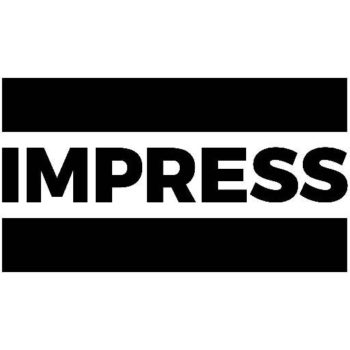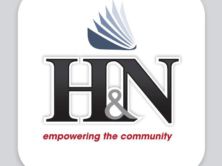
(Credit: Twitter)
There’s officially another press regulator in the UK, called IMPRESS.
The Press Recognition Panel, which was established a few years ago after the phone hacking scandal and the Leveson Inquiry into press standards and practices in the UK, approved IMPRESS today.
IMPRESS released a draft standards code this summer, as iMediaEthics reported, and thus far, more than 30 publications have signed up for IMPRESS as a press regulator instead of the much larger Independent Press Standards Organisation (IPSO). IPSO regulates more than 2,500 publications. IMPRESS received $5.5 million in funding from Max Mosley, the former head of Formula 1 who had successfully sued News of the World over its coverage of him.
In a statement on its website, IMPRESS’s chair Walter Merricks said
“The PRP decision is good news for the press and good news for the public. This is the next important step in building a new era of trust between journalists and the public and a significant moment in the history of press regulation in this country. For the first time news publishers, both large and small, have the choice to join an independent press regulator which is not controlled by major publishers.
“After rigorous examination and close scrutiny of our arrangements, the PRP has confirmed our independence, sustainability and our low cost arbitration scheme which means we can ensure access to justice for all.
“We believe that independent press regulation meets a real public need. As a truly independent regulator, that is not part of the newspaper industry, we can put decent standards and accuracy at the heart of news publishing, dealing with complaints fairly and with impartiality.
“Looking to the future, IMPRESS will continue to build on the progress that we have made to date. IMPRESS member publishers have over two million readers and our membership is growing. Our Trust in Journalism mark defines our publishers as those who are committed to the principles of trusted journalism and lets their readers know that their concerns will be addressed properly.”
Hacked Off’s joint executive director Dr. Evan Harris said in a press release sent to iMediaEthics that “By passing the PRP’s audit, IMPRESS is the first regulator to have proven its independence and effectiveness under the Leveson system of independent assessment. The days of failed industry-controlled regulators like the PCC and its sham replacement IPSO are numbered. IPSO members’ desperate attempts to derail the Leveson process with further delays and aggressive threats of legal action against the PRP, have failed yet again today.”
The BBC noted that IPSO “has not sought official recognition.” According to media site Hold the Front Page, IPSO doesn’t want that recognition because it feels “it amounts to state-sponsored regulation of the press.”
An IPSO spokesperson told iMediaEthics by e-mail, “We have been regulating the overwhelming majority of the UK’s newspapers, magazines and news websites for the last two years and will continue to do so.”
The News Media Association criticized IMPRESS before its approval, the Guardian reported. The association’s deputy chief executive Lynne Anderson is quoted as saying IMPRESS is “not independent, it is not funded by the industry but by a wealthy donor, it has no significant relevant publishers, it has no code of standards and it is not viable.”
She went on, “Recognising Impress would not create an effective press regulator but it would be an attack on free speech, imposing on 90% of the newspaper and magazine industry who have joined an effective self-regulator, Ipso, a system of punitive costs and damages designed to coerce them into compliance with a state-sponsored system of regulation.”
On the other hand, the UK National Union of Journalists’ general secretary Michelle Stanistreet was open to the news. Hold the Front Page reported she said:
“Our objection to IPSO has always been that it is an organisation that represents the interests of the proprietors and management of newspapers. The union has long-held policy on the need for independent regulation that involves journalists, as well as the industry and representatives of the public.
“Our position on a regulator is one which focuses on ethical issues, our own code of conduct and offers the broadest protections for journalists and responsible journalism.
“We have also campaigned for a journalists’ conscience clause to safeguard them from being compelled by their bosses to act unethically in pursuit of a story; so far IPSO has failed to offer this.”
UPDATE: 10/26/2016
In a press release sent to iMediaEthics, the PRP explained its work and background:
“The PRP was created by Royal Charter following the Leveson Inquiry intothe culture, practices and ethics of the press. Part of its role is to assess whether or not a press regulator is properly able to protect the public from unlawful activities carried out by the news publishers, and is able to act when this does take place.
“Following a robust assessment process, the PRP’s Board decided that IMPRESS meets all 29 criteria (numbered 1 to 23) in the Charter, which means that, amongst other things, IMPRESS is independent of the print and online publishers it regulates, and is appropriately funded.”





